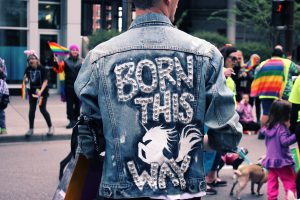LGBTQI+
Lesbian, gay, bisexual, transgender, queer and intersex (LGBTQI) persons face specific obstacles when it comes to accessing many of their rights, including their right to social protection.
The terms lesbian, gay, bisexual and pansexual refer to people’s sexual orientation, that is, who they experience sexual attraction towards; while transgender refers to gender identity, that is, “someone whose gender differs from the one they were given when they were born”. Terms like genderqueer and non-binary refer to people who fall outside the construction of gender as male or female. Intersex people are born with physical or biological sex characteristics such as reproductive or sexual anatomy, hormones or chromosomes that do not seem to fit the typical definitions of female or male.
This is not an exhaustive list of terms: different cultures, both historically as well as today, have used diverse language which express the wide range of sexual orientations and gender expressions, such as “Two-Spirit”, which refers to Native American and First Nations people who fall outside Western gender norms, while “hijra” typically refers to South Asian individuals who were assigned male at birth, but identify as women or as a third gender.
LGBTQI people are entitled to the enjoyment of all the rights outlined in international, regional and domestic human rights law. Yet, due to strongly held cultural and social norms surrounding gender expression and sexuality, LGBTQI people are often excluded. The International Lesbian, Gay, Bisexual, Trans and Intersex Association (ILGA) recognizes this, stating that “social and legal discrimination on the basis of sexual orientation, gender identity and expression, and intersex, is pervasive”.
However, recently, some nations have passed legislation to help protect some of these communities’ and individuals’ right to social protection. A human rights-based approach to social protection, and the development of social protection floors, can transform the lives of LGBTQI people, helping making all societies inclusive ones in which all members fully participate, and in which no one is left behind.
Photo credit: Levi Saunders (via Unsplash).

